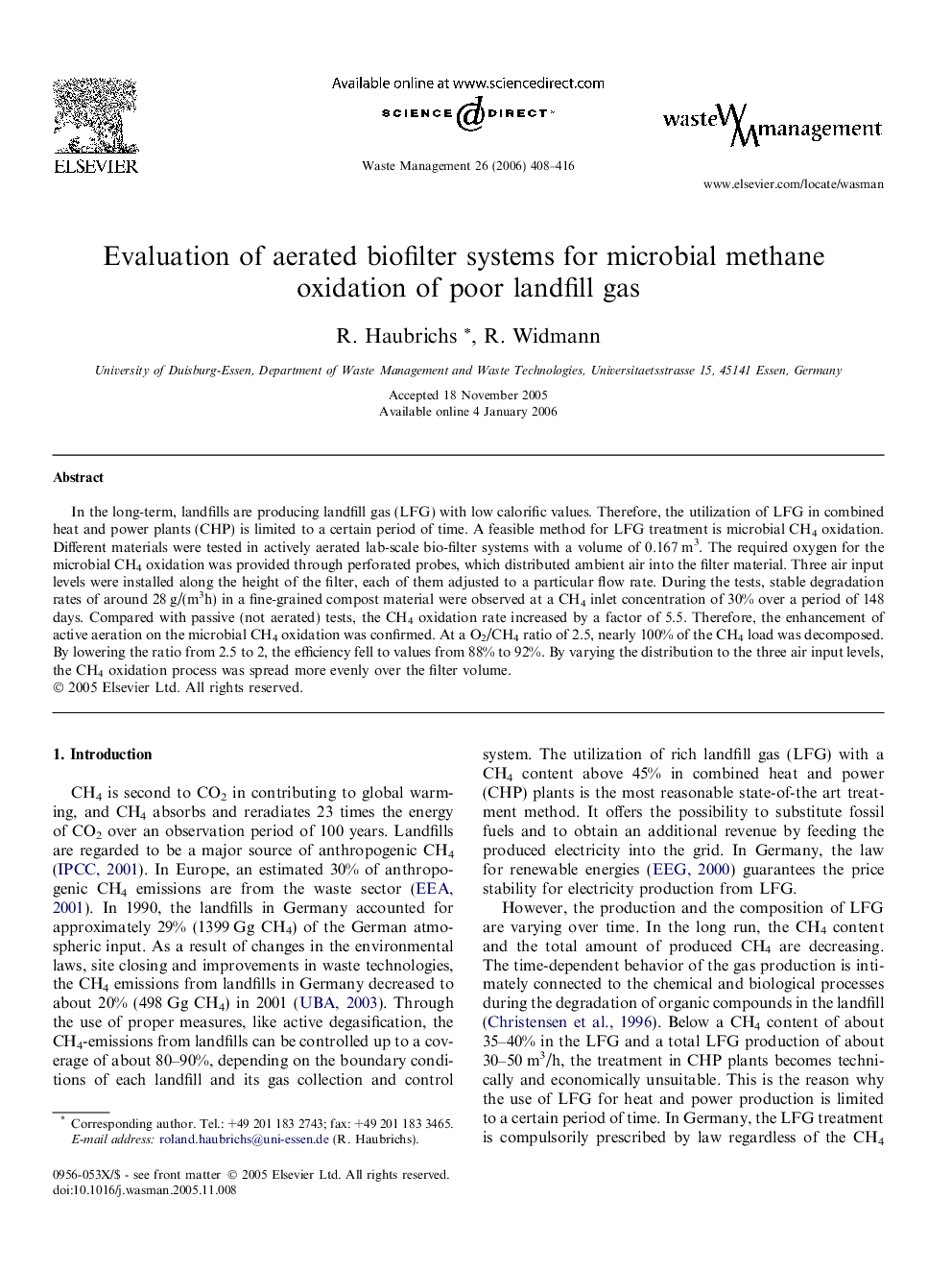| Article ID | Journal | Published Year | Pages | File Type |
|---|---|---|---|---|
| 4473834 | Waste Management | 2006 | 9 Pages |
In the long-term, landfills are producing landfill gas (LFG) with low calorific values. Therefore, the utilization of LFG in combined heat and power plants (CHP) is limited to a certain period of time. A feasible method for LFG treatment is microbial CH4 oxidation. Different materials were tested in actively aerated lab-scale bio-filter systems with a volume of 0.167 m3. The required oxygen for the microbial CH4 oxidation was provided through perforated probes, which distributed ambient air into the filter material. Three air input levels were installed along the height of the filter, each of them adjusted to a particular flow rate. During the tests, stable degradation rates of around 28 g/(m3h) in a fine-grained compost material were observed at a CH4 inlet concentration of 30% over a period of 148 days. Compared with passive (not aerated) tests, the CH4 oxidation rate increased by a factor of 5.5. Therefore, the enhancement of active aeration on the microbial CH4 oxidation was confirmed. At a O2/CH4 ratio of 2.5, nearly 100% of the CH4 load was decomposed. By lowering the ratio from 2.5 to 2, the efficiency fell to values from 88% to 92%. By varying the distribution to the three air input levels, the CH4 oxidation process was spread more evenly over the filter volume.
